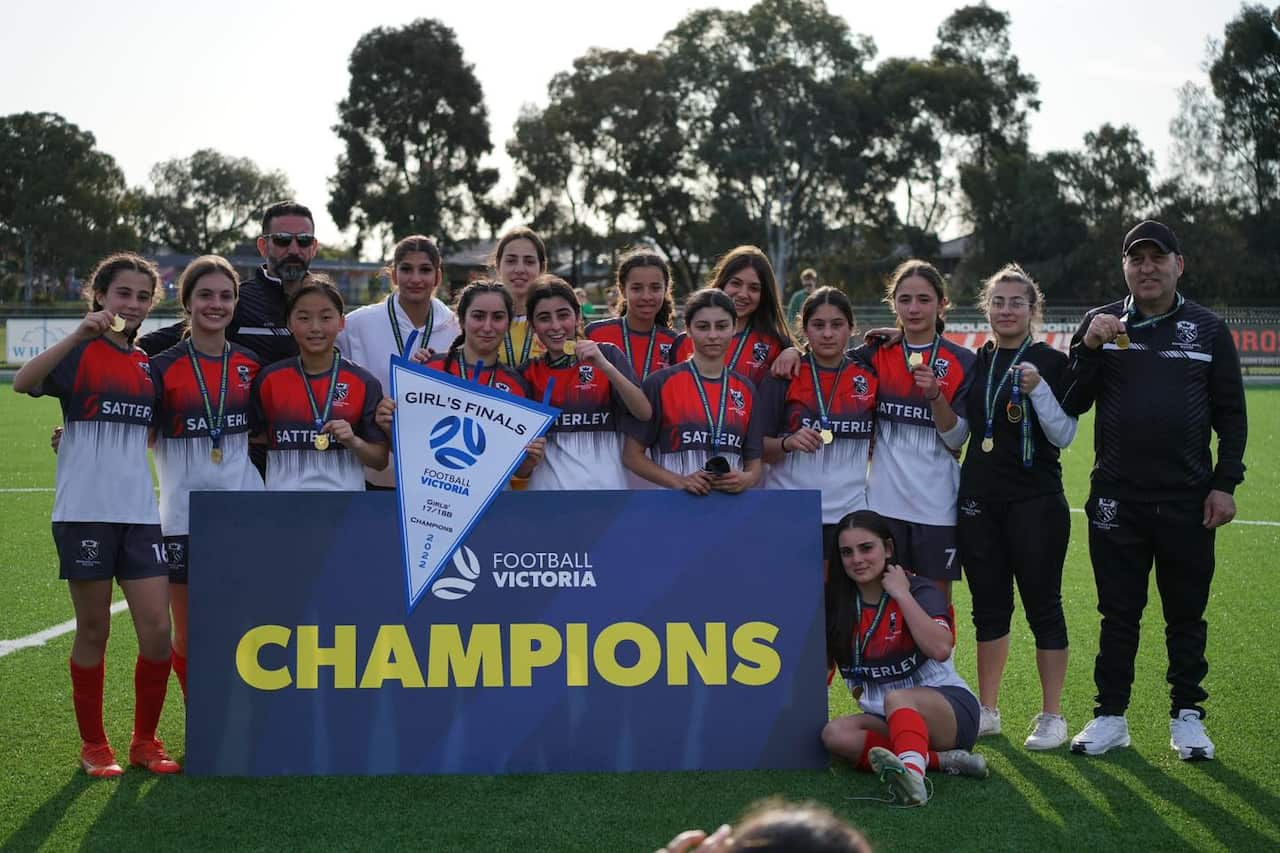Key points
- The attachment of Iraqis to football dates back 100 years.
- Iraqi-Australians are expected to tune into this year's FIFA World Cup in droves.
- Football was a unifying force for Iraqis in the most difficult circumstances, according to sports journalists.
Sports journalist, Rafiq al-Aqabi, who was with the Iraqi national team when they won the 2007 AFC Asian Cup, says that this victory "…united the Iraqi people under difficult circumstances at that time.”
Mr al-Aqabi recalls that after the team returned to Iraq after winning the cup and despite the internal turmoil and violence in the country, "...the fans stood along the road from Baghdad International Airport (west of Baghdad) to the Rashid Hotel in central Baghdad, defying explosions and other dangers."
Although Iraq is not taking part in the FIFA World Cup, interest in the tournament and football or "tawbah" in the Iraqi dialect, has never been higher among fans both at home and abroad, says Mr al-Aqabi.

Iraq's coaches and players front the media ahead of a match against Iran in Australia in 2015.
Sports commentator and journalist, Tariq Al-Haris, told SBS Arabic 24 that Iraqis’ “…knowledge of football dates back to the 1920s when it was introduced to them by British oil workers in Kirkuk and workers at the port of Basra in the south.”
“The Iraqi Football Federation was founded with 14 teams in 1948, and officially joined the international Federation two years' later,” he said.
Dr Hamoudi Al-Nashmi, from South Australia, says Iraqis are passionate about football because it's the "poor people’s" game in that it doesn't need much equipment or fancy pitches in order to be played.
"We used to play football when we were little because we only needed a yard with goal posts that we used to make from paving stones or even our textbooks," explains Dr Al-Nashmi.
Although many people in the world adore football, the love of Iraqis for football has eclipsed mere fandom - the sport has become a symbol of unity during difficult times.
Coach and football lover, Bassem Rasho, a resident of Melbourne, says that football is "…the only outlet for the Iraqi people.”
Following the matches of the national football side was sometimes “the only thing that unites them”, he said.
Time difference will be a challenge
However, tuning into this year’s World Cup does not come without a dilemma for some Iraqi-Australians.
Dr Al-Nashmi believes that the biggest problem facing Iraqi fans in Australia is the time difference of between eight and 12 hours, meaning most games would be televised in the small hours of the morning.
But it seems that some have found the solution to this problem.
Dr Waleed Al-Khazraji, an anesthesiologist in Adelaide, says that if possible, he changes his work schedules to start later if there is an important match being played in the early dawn hours in Australia.
Fans will go to extreme lengths to support the Iraqi team too. During the 2015 AFC Asian Cup, which was held in several Australian cities in 2015, Dr Al-Nashmi says he travelled to Brisbane, Sydney and Perth to see his team play.

Ahmed Yasin for Iraq, Brad Smith for the Socceroos and Alaa Abdulzehra for Iraq during the qualifier match between the Australian Socceroos and Iraq in Perth in 2016. Source: AAP / TONY MCDONOUGH/AAPIMAGE
With the help of poets, he composed a song dedicated to the team and sung by singer Mohammed al-Najjar.
We went to the hotel where the Iraqi national team was staying in 2015 in Sydney and presented the song to them to encourage them to do their best.
Although the Iraqi national team did not reach the finals at the 2015 AFC Asian Cup, its solid performance satisfied fans, especially in Australia.
Over the course of more than 70 years of international football, the Iraqi national teams have achieved many milestones, perhaps the most important of which was qualifying for the World Cup finals in Mexico in 1986, Mr Al-Haris says.
In Australia, the passion for football among the Iraqi community is almost tangible.
Coach, Basem Rasho, recalls that after arriving in Melbourne, he organised a group of fellow Iraqi-Australians over the age of 30 into a football team.
He did not stop there and set up a training class for girls at his nearest sports club.
His daughter, Shamiran, was one of the girls who joined the class.

Shamiran Rasho's team are inspired by Iraq's national team successes. Mr Rasho is first (right) with Shamiran (second, right). Credit: Shamiran Rasho
Shamiran says that the Iraqi girls’ under-18 team in Melbourne is the best and is set to join Victoria Football Girls' 17/18 years League next season.
You can also listen to our programs via or through the SBS Radio app available for free on


